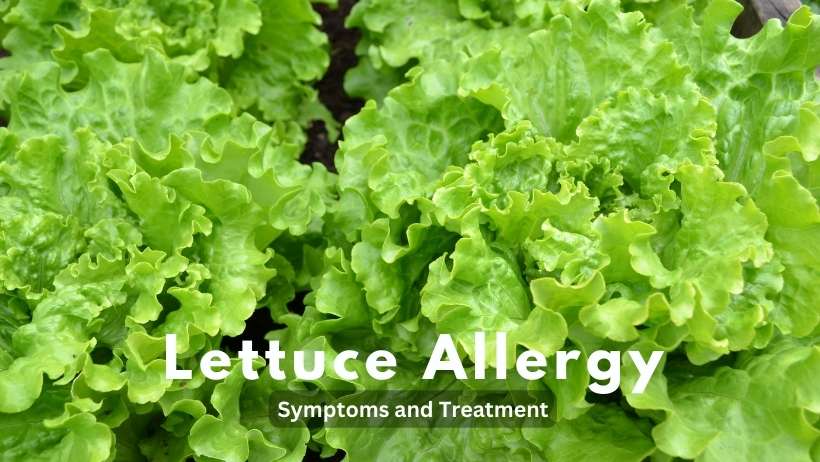Lettuce is a source of folic acid and vitamin A. It is also a low-calorie food. But in some people who complain of lettuce allergy, the nutrients in this leaf vegetable are not tolerated by the body. It is better to be informed about Lettuce allergy symptoms to prevent it if you are suffering and get proper medical help.

In its protection mechanism, the immune system releases the antibody IgE to eliminate the nutrients of lettuce once it is taken in. The symptoms are the external manifestation of the chemical reactions between the IgE antibody and the nutrients of this vegetable.
Recent research suggests that certain food allergies, including lettuce allergy, may be hereditary. Family history of food allergies can increase one’s risk of developing similar sensitivities. This genetic link means that those with close family members who have allergies to foods or pollen might have a higher predisposition to lettuce allergy as well. Source.
Understanding the Causes of Lettuce Allergy
The exact cause might vary for each individual. However, there are some common triggers. It is often not just the lettuce but the proteins present in it that cause an allergic reaction. These proteins are like those in other foods or pollens, leading to cross-reactivity. If a person is allergic to ragweed pollen, he might also react to lettuce due to similarity.
Some chemicals used in the growth or preservation of lettuce, such as pesticides or preservatives, may also contribute to allergic reactions in sensitive individuals. This is why organic options are often recommended for those with sensitivities. Source.
Lettuce Allergy Diagnosis
To confirm a lettuce allergy, a doctor can suggest an allergy skin test or a blood test. The skin test involves placing a tiny bit of lettuce extract on the skin and then pricking it to introduce the allergen. If there is a raised bump or hive, it indicates an allergy. Blood tests are also done to measure the amount of IgE antibodies when a person is exposed to lettuce proteins.
Lettuce Allergy Symptoms
Some of the top Lettuce allergy symptoms are as mentioned below:
- Headache
- Sore eyes
- Itching
- Diarrhea
- Wheezing
- Runny nose
- Cough
- Sneezing
- Watery eyes
- Asthma
- Itchy eyes
- Throat swelling
- Lip swelling
- Tongue swelling
- Tingling mouth
- Sinus pain
- Facial redness
- Facial swelling
- Eczema
- Swallowing problems
- Breathing problems
- Hoarseness
- Vomiting
- Redness around lips
- Nausea
- Constipation
- Lightheadedness
- Low blood pressure
- Disturbed sleep
- Skin flushing
Lettuce Allergy Treatment
Like other food allergies, this condition has no cure. The treatment options available aim at reducing the severity and number of signs under control. A patient suffering from this condition has to deal with it for a lifetime.
A simple but effective method of preventing this allergy is to gain awareness and avoid food and other stuff containing it. Maintaining a list of food products containing lettuce can also be very beneficial.
Allergy specialists suggest that keeping an allergy journal can be helpful in tracking reactions and identifying any specific factors that may worsen symptoms. This can be particularly useful in adjusting diet and lifestyle to avoid future issues. Source.
Mild signs may not require any treatment. However, antihistamine drugs, nasal sprays, eye drops, oral steroids, and EpiPen devices can treat moderate forms of this allergy.
In its severe form, a condition called anaphylaxis is a medical emergency. Here, the signs of the allergy spread all across the body quickly and start affecting the organs. Immediate hospitalization of the patient, followed by medical intervention, is required in this condition.
Living with Lettuce Allergy
Read food labels carefully and inquire about ingredients when dining out. Many salads, wraps, or burgers contain lettuce. Always specify your allergy before ordering food. Carry an allergy card that explains your allergy in detail. The card might be handy when traveling. Regular check-ups with a doctor are essential to monitor the allergy and help in management and treatment.
For added protection, consider using a medical alert bracelet to inform others of your allergy in case of an emergency. This can be especially useful when traveling alone or in unfamiliar places. Source.
